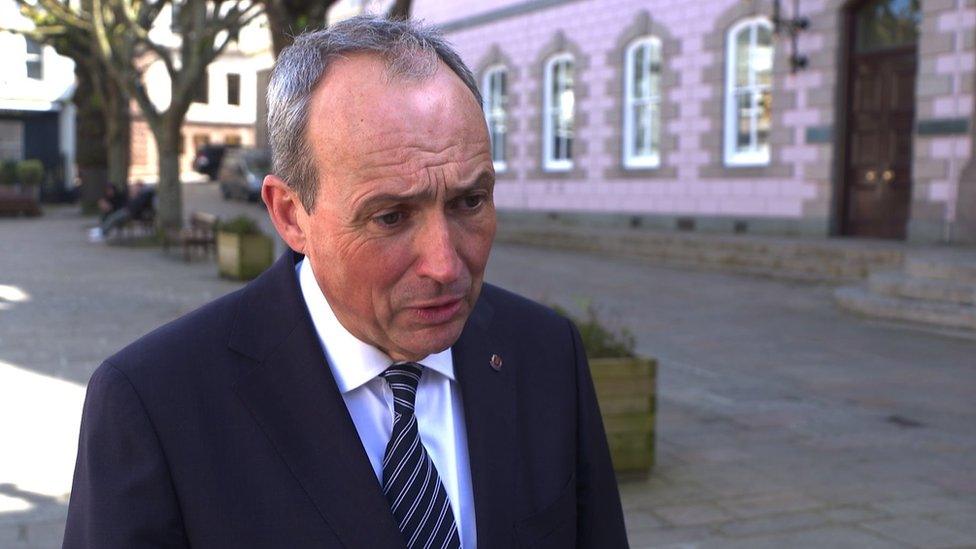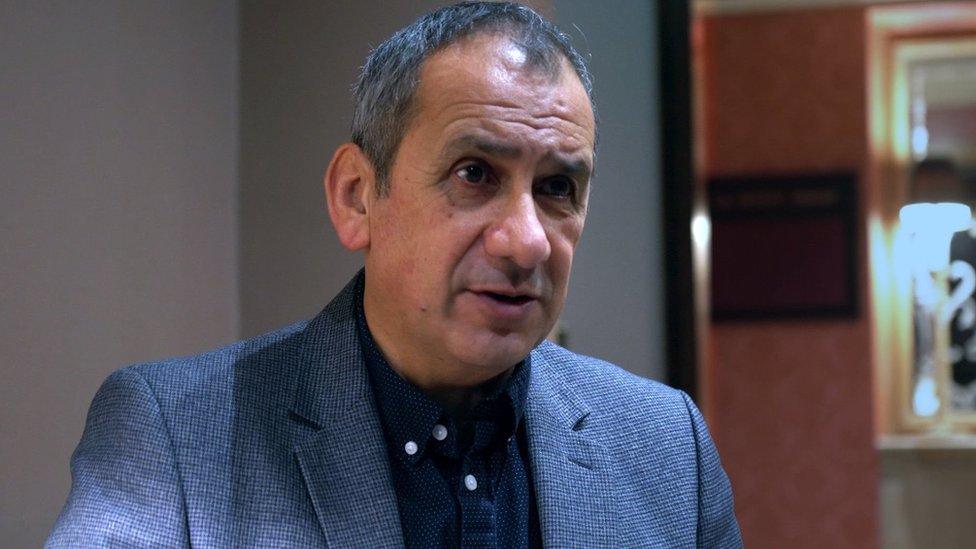What could the living wage mean for Jersey?
- Published

Chief Minister Deputy Lyndon Farnham said the government would support businesses as their wage bills increased
Jersey's lowest paid workers could get a pay rise, after the chief minister made introducing a so-called living wage for everyone a priority.
It will mean increasing the minimum hourly rate from £11.64 to £13.41.
Critics say it could put undue pressure on businesses when many are already facing increasing costs.
However, Chief Minister Deputy Lyndon Farnham said the government would support businesses as their wage bills increased.
The list of government priorities were published at the start of April.
He said: "It is clear that a move to a living wage will help islanders deal with the cost of living pressures.
"We [the government] have said we will provide support to employers in bridging the gap to the living wage.
"That will be led by the minister for economic development. He will be working with the business sectors to decide how best that support can be implemented."

Murray Norton said the effects for some employers will be 'drastic'
However, Murray Norton, CEO of Jersey's Chamber of Commerce, said the effects for some employers would be "drastic".
"Prices will rise. There will be job losses. And some businesses will wonder if it's worthwhile staying open if their costs are higher than their income and they are making a loss."
Some Jersey firms already pay their staff the living wage and can apply for accreditation from the anti-poverty charity, Caritas.

Patrick Burke said: "If you look after them [employees] they tend to stay with you"
Patrick Burke, owner of the Atlantic Hotel, described it as a "no brainer".
"At the end of the day, you just have to do the right thing in life and I think it's very clearly the right thing to do for us.
"If you look after them [employees] they tend to stay with you.
"Since adopting the living wage a couple of years ago, we have seen significant improvement in our staff retention."

Deputy Max Andrews had described the proposed pay rise as "win-win."
Deputy Max Andrews, for St Helier North, called for the States to debate the introduction of a mandatory living wage, before it was announced as a political priority.
He had described the proposed pay rise as "win-win".
"Inevitably we are going to see an increase in terms of costs for businesses. But they should be able to afford the baseline wage and all staff should be able to live independently from the state.
"I think it's going to give workers an opportunity where they can save more, but they've also got more disposable income as well.
"It means they can spend in the local economy and indirectly can be generating more in GST (Goods and Services Tax) revenue because of that."

Follow BBC Jersey on X (formerly Twitter), external and Facebook, external. Send your story ideas to channel.islands@bbc.co.uk, external.
- Published18 December 2023